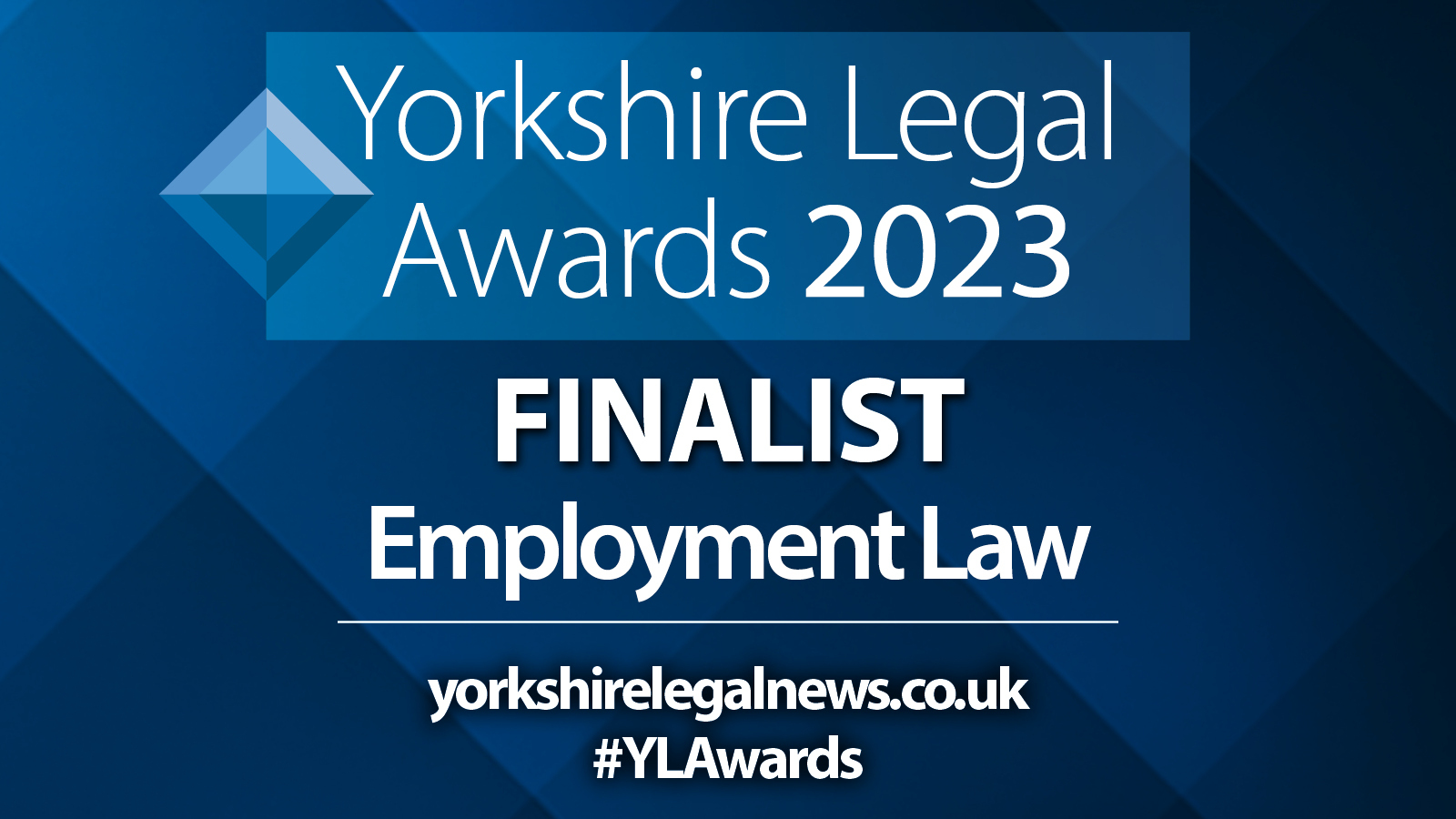Employment Law Services
7 Steps to Success With Settlement Agreements
A settlement agreement is a legally binding contract between an employer and an employee, which settles a claim that an employee might have against their employer. A settlement agreement is normally used in connection with terminating the employment, but this isn’t always the case. We have put together this guide, 7 steps to a reaching a successful settlement agreement, we hope you find the information useful.
1. ‘Without Prejudice’ vs ‘Protected’ conversations
To get the ball rolling on offering a settlement agreement to an employee that you have decided you would like to bring their employment to an end, you will want to have an ‘off the record’ chat which ideally cannot be referred to in future tribunal correspondence should you fail to reach agreeable terms.
There are two mechanisms which you can use to start the ‘off the record’ chat:
- the ‘without prejudice’ common-law principle; an
- a ‘protected conversation’ under section 111A Employment Rights Act 1996.
It’s important to understand how both mechanisms work, and to what set of circumstances they should be applied.
The following are required for a discussion to qualify under the ‘without prejudice’ rule:
- an existing dispute between the parties, (e.g. threat of a claim by the employee);
- a genuine attempt to settle that dispute;
- an agreement to treat the discussions as without prejudice; and
- no ‘unambiguous impropriety’ in the conduct of the parties during the settlement discussion.
If there is no existing dispute then, a different rule needs to be used as if the ‘without prejudice’ rule does not apply and any ‘off the record’ chat (even if the employee agrees to having one) would not be protected and therefore becomes admissible in tribunal proceedings.
The ‘pre-existing dispute’ element previously made it difficult for employers who had come to the decision that they wanted to have an ‘off the record’ discussion about mutually bringing an employee’s employment to an end. The Government responded by inserting statutory provisions into the existing section of 111A Employment Rights Act 1996. This provision permits discussions between you and an employee with a view to terminating their employment on agreed terms to remain confidential and inadmissible in proceedings before Tribunal and can be ‘out of the blue’ from an Employee’s perspective.
Please be advised however that the ‘protected conversation’ is only protected to the extent that unfair dismissal proceedings are included but does not preclude you behaving improperly such as putting undue pressure on the employee to resign, using harassing or bullying behaviour. Protection will also not be extended where discrimination or whistleblowing is alleged.
In summary therefore as a rule of thumb:
- If there is an existing dispute then you should hold a ‘without prejudice’ discussion.
- A protected conversation should be held when there is no existing dispute.
2. Confidentiality and Restrictive Covenants
Confidentiality is a fundamental principle of a successful settlement agreement as it is likely you will want the agreement and the circumstances leading up to the offer of settlement to remain strictly private and confidential. Generally, employers don’t want to be known for settling employees out as it can give rise to opportunistic and baseless claims when another employee departs knowing that there is scope for being paid to go quietly above any notice entitlement. Confidentiality tends to be mutual between the parties and a list of exclusions are provided for within the agreement. In the case of the employee these will include examples such as: immediate family, HMRC and professional advisers who will all adhere to a duty of confidentiality.
Restrictive covenants can often be reaffirmed in settlement agreements and can give you greater comfort that a departing employee will be restricted from damaging your business when they join a competitor for example. If they have been recently negotiated and independently advised upon as part of the settlement agreement they will have a higher likelihood of enforceability in the courts should there be concerns of a breach in the future. Simply by their inclusion and discussion will act as a deterrent for the exiting employee to abide by them.
3. References & announcements
References and announcements can be more important to exiting employees then you might expect in some circumstances. It is therefore very common for parties to agree on the wording for any announcement and subsequent reference which will be requested by a prospective employee. Commonly they are a condition of the settlement agreement and the specific wording for both an announcement and a reference are set out as separate schedules to the main body of the agreement. References tend to be limited to factual references: name of employee, employee’s job role and dates of employment.
4. PILON & notice periods
You have to decide how you wish to treat an employee’s notice period. If you require an employee to work their notice period then you will serve them notice and the settlement agreement might require reaffirmation in they have a long notice period. You might decide that you don’t want the exiting employee working for a competitor immediately and you may elect to put them on Garden Leave. Finally, you may decide that you just want to bring the relationship to an abrupt end and then pay them in lieu of their notice period referred to as a PILON. We would advise that you check the employee’s contract of employment as to whether you have a contractual right to make a PILON (and what payments are included within the PILON) or to put them on Garden Leave. Presently many employers who’d normally make a PILON are not doing so as they can recover furlough grant monies to contribute towards notice pay under the Coronavirus Job Retention Scheme. You should seek advice in such circumstances.
5. Holiday
Your starting point should be to check the employee’s contract of employment as to how holidays are treated on termination of employment. Generally speaking if you are making a payment in lieu of notice you would pay any accrued but untaken holiday up to the Termination Date. The contract of employment will then determine if accrued but untaken holidays are deemed to be taken in notice periods. If the employee is working their notice period or being put on Garden Leave and the contract does not give a right that their holiday is deemed to be taken you could still give the employee twice the notice for the amount of annual leave remaining and therefore it would not need to be paid in addition to the notice period (subject to the length of the notice period of course). Treatment of holiday pay can often be a contentious stumbling block when trying to get a settlement agreement over the line so a well drafted provision in a contract of employment can alleviate any further discussion.
6. Tax and Termination Payments
A few years ago if there was no express payment in lieu of notice clause (PILON) in an employee’s contract of employment you could legitimately gross up an exiting employee’s notice period. This is often an employee’s misconception that you will need to make clear to them during any negotiations. HMRC has recently updated their manual about the tax treatment of termination payments https://www.gov.uk/hmrc-internal-manuals/employment-income-manual/eim13890 and makes clear how post-employment notice pay (PENP) should be calculated.
The basic rule is that anything treated as salary or benefits is subject to deductions for tax and NI (bonuses, notice, holiday pay). Whereas up to £30,000 can be paid tax free in respect of compensation for loss of employment and is usually referred to as an ex gratia payment.
7. Contribution to legal fees
You are expected to contribute for an employee’s legal fees for them to go and seek independent legal advice on the terms of the settlement agreement. You should expect to contribute £500 plus VAT so that an independent adviser (usually an employment specialist solicitor) can advise the employee on the terms. Without such independent advice the settlement agreement will not be legally binding under the relevant settlement agreement legislation.
Disclaimer
- Please note – this guidance is not intended to be taken as legal advice – for individual situations you will need to take specific legal advice,
- All information provided should be read alongside the relevant Government Guidance at https://www.gov.uk. We hope you have found this note useful and if you do have any queries please get in touch with our expert settlement agreement solicitors in Leeds.
Please call 0113 322 9222 or email enquiries@consilialegal.co.uk
Contact Our Employment Law Team
On page form
Form for all pages
"*" indicates required fields

Read Our 5 Employment Law Star Reviews

Fantastic support
★★★★★
The highest of recommendations to Marie and her team. Personable, supportive and incredibly knowledgeable. In times where you absolutely have to be on point in matters both personal and corporate you need a team you can trust and that team is Consilia.
Did Not Disappoint
★★★★★
Marie was recommended to by a friend – and she did not disappoint. Great client service from the whole team, very practical and pragmatic advice and a happy client at the end of it!
Thank you, all. Highly recommend for employment law advice.
Thank you
★★★★★
I’d like to take the opportunity to say a big thank you to Andy Boyde for helping me with my employment issue. For someone who was in a difficult situation his knowledge and expertise helped guide me through the process. He always provided quick responses and was readily available to provide expert advice whenever I needed it. I was impressed with the knowledge and professionalism shown and would recommend him if you are ever in a complicated employment situation.
Patient & Understanding
★★★★★
I spoke with Victoria Horner who gave me not only patience and understanding, but excellent legal advice that left me feeling confident. I would definitely recommend Victoria and Consilia Legal.
Seriously On The Ball
★★★★★
Cannot recommend this company enough. Seriously on the ball, ring you back when they say they will and completely exceed expectations. Thank you Andy and all at Consilia.
Couldn’t have been happier
★★★★★
I couldn’t have been happier with your service – you and your team were a pleasure to deal with. I had absolute confidence in Marie and loved her pragmatic and no nonsense approach. I was also treated with total respect at what was a personally challenging time for me. Couldn’t recommend you highly enough.
Put me at ease
★★★★★
Marie put me at ease at all times and trusted that she would always work for my best interest. She did not let me down.
So grateful
★★★★★
I am so grateful for all your help and support on this matter. It had been the first time I had been in such a situation and felt nervous and uncertain. Marie put me at ease and helped me to get a deal I was happy with. Thank you.
FAQ’s on Settlement Agreements
Settlement Agreements, also known as Compromise Agreements, are legal documents that often mark the end of an employment relationship. Whether you’re an employer or an employee, navigating the intricacies of these agreements can be daunting. To shed light on common queries, we’ve compiled a list of frequently asked questions (FAQs) about Settlement Agreements.
What is a Settlement Agreement?
A Settlement Agreement is a legally binding document that outlines the terms under which an employee agrees to leave their employment. It typically includes details about financial compensation, confidentiality, references, and the employee’s agreement not to pursue legal action against the employer.
Do I Need Legal Advice For A Settlement Agreement?
Yes, it is a legal requirement for the employee to seek independent advice from a relevant adviser before signing a Settlement Agreement. This ensures that the employee fully understands the terms and implications of the agreement. Employers often contribute to or cover the costs associated with obtaining legal advice.
What Terms Does a Settlement Agreement Include?
Settlement Agreements are customisable, but they commonly include:
-
- Financial Settlement: Details about any compensation offered.
- Confidentiality: Terms governing the confidentiality of the agreement.
- References: Information about the nature of references the employer will provide.
- Legal Fee Contribution: It is common for employers to make a contribution to an employee’s legal fees. The average contribution is between £350 – £500 plus VAT.
- Post-Termination Restrictions: Any restrictions on the employee’s future professional activities.
Is the Financial Settlement Taxable?
The tax implications of the financial settlement depend on its nature. Statutory redundancy payments are typically tax-free, but other payments may be subject to taxation. It is advisable to seek guidance from a tax professional to understand the specific implications in your case.
Can I Negotiate the Terms?
The terms of a Settlement Agreement can be negotiable, and both parties may engage in discussions to reach a mutually acceptable arrangement. Employees should feel empowered to negotiate terms that address their individual needs, and employers may also be open to reasonable amendments. Employees will need to be aware that by entering into negotiations this can bring with it the risk that Employers withdraw the offer on the table.
Can I Raise a Grievance After Signing?
In most cases, signing a Settlement Agreement means the employee agrees not to pursue legal action or raise grievances related to their employment. However, there may be exceptions, you must you seek legal advice if you want to raise a grievance after signing a Settlement Agreement or if you believe you have grounds for a claim. Being in breach of a Settlement Agreement by bringing a claim can bring with it serious financial consequences.
We would recommend arranging an initial consultation with one of our specialist family team who can assess your situation.
How Long Do I Have to Consider the Agreement?
Employees are typically given a reasonable amount of time to consider the terms of the Settlement Agreement. ACAS guidance advises a minimum of 10 days. This ensures that the decision to sign is not rushed, and the employee has sufficient time to seek legal advice and fully understand the agreement.
What Happens if I Refuse to Sign?
If an employee refuses to sign a Settlement Agreement, they retain their legal rights to pursue claims against the employer. However, employers may then proceed with standard dismissal procedures, potentially resulting in a less favourable outcome for the employee.
Settlement Agreements involve complex legal considerations, and understanding the finer details is crucial for both employers and employees. These FAQs provide a starting point, but it’s essential to seek professional legal advice tailored to your specific circumstances when dealing with Settlement Agreements. Clear communication and a thorough understanding of the terms can lead to a smoother resolution of employment matters.
Award Winning Leeds Employment Law Solicitors
At Consilia Legal, our employment law team have achieved numerous accolades and recognitions, whether as nominees, finalists, or winners of prestigious Legal Awards. We're also ranked in the top three employment Solicitors in Leeds on Three Best Rated for the fourth consecutive year.
Our team of expert Leeds Employment Solicitors are dedicated to securing the best outcomes for our clients, from general employment law matters to complex Settlement Agreements. We're proud to have our highly regarded Employment law team featured in the esteemed Chambers and Partners publication. Our excellent reputation, evident in our 5 star reviews for Employment Law Matters on Review Solicitiors extends throughout Leeds and the Yorkshire region, and we're ready to represent you with your Employment Law matter, wherever you are located.
Latest News in our Blog
Zero-Hours Contracts Under Scrutiny: Could Stricter Regulations Be on the Horizon?
Zero-hours contracts (ZHCs) are a controversial, but certainly not new, feature of the UK labour market. While they offer flexibility for some...
Redundancy vs Restructure: What’s the Legal Difference (and Why It Matters)
A change in business needs can result in cost reductions and having to run a business more efficiently. This could be a consequence of company...
Redundancy During Pregnancy or Parental Leave: Know Your Legal Protections
Employment rights during pregnancy and when looking after a newborn baby are a concern for impending and new parents under any circumstances....














